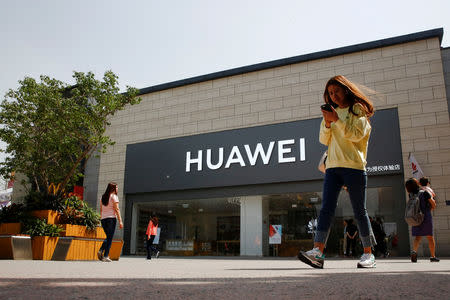Amid trade, Huawei furors, U.S. House panel launches China 'deep dive'
By Patricia Zengerle
WASHINGTON (Reuters) - The U.S. House of Representatives Intelligence Committee launched on Thursday a "deep dive" focus on China this year and next, one of several moves by U.S. lawmakers focusing on what they see as troublesome activities by Beijing.
The committee held a hearing with outside experts looking at what members described as China's use of technology for surveillance, influence and political control domestically and the use of Chinese technology for such purposes internationally.
The hearing took place a day after Republican President Donald Trump's administration put telecommunications equipment giant Huawei on a blacklist and said it would take steps to protect U.S. companies, a further test of relations as the economic heavyweights clash over trade.
"Today, our nation faces no greater long-term strategic challenge than China's emergence as a major actor on the global stage," Representative Adam Schiff, the committee's Democratic chairman, said in his opening statement.
Schiff said China used artificial intelligence, machine learning and facial recognition software, to cement social control. "This coupling of innovation and authoritarianism is deeply troubling and has spread beyond China itself," Schiff said.
"Beijing has implemented an aggressive and sophisticated whole of society influence campaign to win supporters, sow confusion in the American public and undermine opposition to the Chinese threat within American society," said Representative Devin Nunes, the committee's ranking Republican.
Citing what he termed a "vast array" of efforts from China against U.S. interests, Nunes criticized Democrats for having focused on questions about whether the Republican Trump's presidential campaign had cooperated improperly with Russia to influence the 2016 U.S. election.
Schiff criticized Huawei at the hearing.
"Huawei’s own officials have confirmed that they have no interest in guaranteeing the civil liberties and privacy protection for the citizens in countries who purchase their equipment. This unacceptable. We cannot — and should not — stand by as civil liberties and privacies protection are degraded en masse," he said.
(Reporting by Patricia Zengerle; Editing by Nick Zieminski)


